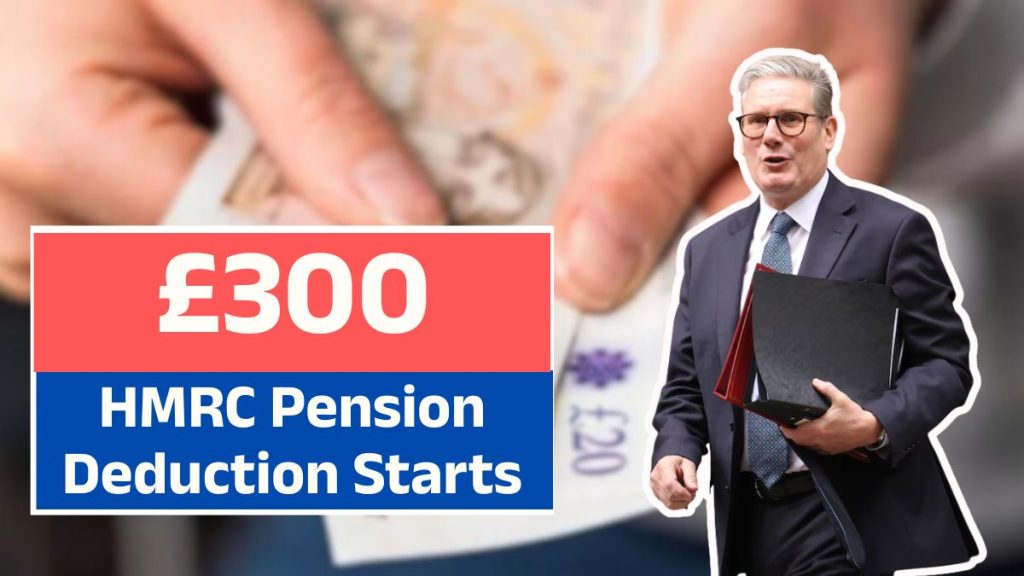In one of the most significant pension updates in recent years, the Department for Work and Pensions (DWP) has officially confirmed that eligible retirees could start receiving up to £649 per week from October 23, 2025.
The news has generated widespread attention among millions of current and soon-to-be retirees across the UK. The announcement signals a major step forward in improving retirement income at a time when living costs, energy bills, and inflation pressures continue to challenge household budgets.
The DWP’s update highlights the government’s continued commitment to the Triple Lock system — which ensures State Pensions rise each year by the highest of inflation, average earnings, or 2.5%. Combined with Pension Credit top-ups and cost-of-living support, the new structure could bring some of the biggest weekly increases retirees have seen in years.
What the £649-a-Week Pension Really Means
Although the headline figure of £649 a week has caused excitement, it’s essential to understand that this amount represents the maximum possible entitlement, not a universal payment.
The figure combines multiple forms of support available to qualifying retirees, including:
- The full new State Pension (projected between £233 and £241 per week for 2025).
- Pension Credit top-ups, especially the Guarantee Credit element.
- Additional benefits linked to disability, caregiving, or cost-of-living supplements.
For pensioners who meet all qualifying criteria, the combined weekly total could reach approximately £649, significantly improving their income security.
However, not everyone will receive this amount. The DWP has clarified that the higher total is designed to assist those on low or modest incomes who depend primarily on the State Pension and have minimal private savings.
Why the Increase Matters in 2025
The government’s decision to introduce this enhanced pension package comes against the backdrop of rising inflation and energy costs. Many pensioners have struggled with fixed incomes while essential expenses — from heating to groceries — have surged.
According to the DWP, the move aims to tackle pensioner poverty, encourage Pension Credit uptake, and ensure the Triple Lock guarantee continues to provide real protection against the cost-of-living crisis.
Officials have also emphasised that the updated pension model represents a “fair reward for a lifetime of work,” ensuring that older citizens maintain dignity and stability in retirement.
How the £649-a-Week Pension Is Calculated
The full potential payment combines several income streams managed by the DWP:
| Component | Estimated Weekly Amount (2025) | Notes |
|---|---|---|
| Full New State Pension | £233–£241 | Based on Triple Lock increase |
| Pension Credit (Guarantee Credit) | £218–£225 | For low-income pensioners |
| Disability or Carer Top-Ups | £60–£80 | Depending on eligibility |
| Cost-of-Living or Energy Supplements | £50–£100 | Variable, depending on government policy |
| Total Possible Weekly Income | Up to £649 | For those meeting all eligibility criteria |
The final amount each pensioner receives will depend on their individual circumstances, including income, savings, and living arrangements.
Eligibility Criteria for the £649-a-Week Pension
Preliminary guidance from DWP sources suggests that retirees may qualify for the maximum weekly amount if they meet the following conditions:
- Receive the full new State Pension.
- Qualify for Pension Credit, particularly the Guarantee Credit component.
- Meet the means-tested income threshold established by the DWP.
- Receive additional support due to disability, caregiving, or low-income status.
- Live alone or with a partner who also meets the qualifying conditions.
Those with limited private pensions or savings are expected to benefit the most from the enhanced structure. Pensioners are being urged to check their Pension Credit eligibility, as many who assume they do not qualify may actually be entitled to top-ups.
Encouraging More Pensioners to Claim Pension Credit
One of the main drivers behind this reform is the ongoing under-claiming of Pension Credit, a benefit designed to boost income for low-income retirees.
Despite repeated campaigns, an estimated 850,000 eligible pensioners are still not claiming Pension Credit — meaning billions of pounds in potential support go unclaimed each year.
By connecting the £649-a-week figure with Pension Credit, the government hopes to:
- Encourage more pensioners to apply for their entitlements.
- Reduce income inequality among older citizens.
- Improve take-up through simplified and automatic eligibility checks.
The DWP is also developing a new automatic Pension Credit checker, which will use existing data to alert pensioners who appear eligible but have not yet claimed.
Which Age Groups Will Benefit Most
The 2025 changes are expected to benefit three key groups:
- Current pensioners aged 66 and above already receiving the State Pension.
- New retirees reaching State Pension age on or after October 23, 2025.
- Low-income pensioners in their 70s, 80s, and 90s who qualify for Pension Credit or disability-related top-ups.
For retirees approaching State Pension age, this announcement could play a significant role in retirement planning and budgeting, especially as they assess how government support aligns with private or workplace pensions.
How to Check If You Qualify
To ensure you don’t miss out when the new rules take effect, pensioners are encouraged to take the following steps now:
- Use the GOV.UK pension forecasting tool to estimate your State Pension amount.
- Check your National Insurance record to confirm you have the necessary qualifying years.
- Review your Pension Credit eligibility — even if you have some savings or small private pensions.
- Consult Citizens Advice or a financial adviser if unsure about your eligibility.
- Explore additional benefits, such as:
- Council Tax reductions
- Warm Home Discount
- Free dental or optical care
- Cost-of-living payments
Even small increases in income through Pension Credit can unlock access to several of these additional benefits.
How and When Payments Will Begin
According to DWP officials, payments for the enhanced pension support will begin on October 23, 2025, with funds automatically deposited into eligible pensioners’ bank accounts.
For Existing Claimants:
- Payments will adjust automatically.
- No new applications will be required for those already receiving the State Pension and Pension Credit.
For New Applicants:
- A new pension claim must be submitted through GOV.UK or by phone.
- Applicants must complete Pension Credit and income assessments.
- Evidence of income, savings, and living arrangements will be required.
Payments will follow the individual’s existing schedule — typically weekly or every four weeks, depending on preference.
The Role of Pension Credit in Reaching £649 a Week
Pension Credit will be the linchpin for achieving the higher weekly totals. Even modest amounts of Pension Credit can significantly increase overall income, as they may unlock access to other forms of financial aid.
The DWP has adjusted its income thresholds, making it easier for pensioners with small additional funds — such as small occupational pensions — to qualify.
Pensioners are encouraged to apply even if they believe their income is too high, as eligibility rules can vary and partial awards are possible.
Why the DWP Is Expanding Pension Support
The government’s motivation for this increase stems from several pressing issues facing retirees:
- Inflation and rising living costs have eroded the real value of the State Pension.
- Energy price volatility continues to strain household budgets.
- Advocacy groups have long called for stronger financial protections for older people.
- The government’s Triple Lock pledge ensures pensions keep pace with cost pressures.
By enhancing State Pension support and simplifying top-ups through Pension Credit, the DWP aims to provide greater economic security and ensure that no pensioner is left behind.
Impact on Long-Term Retirement Planning
Financial experts say the new pension structure could have far-reaching implications for retirement planning.
For current workers nearing pension age, the higher potential income could influence decisions on when to retire, how much to save privately, and whether to defer claiming the State Pension to increase entitlement.
However, analysts caution that inflation could still reduce the real purchasing power of the £649 weekly maximum over time, depending on broader economic trends.
Still, for low-income retirees, the increase represents a meaningful improvement in financial stability.
Expert Insights and Reactions
Pension specialists and advocacy organisations have largely welcomed the DWP’s announcement, though they stress the need for clear communication and easy access to claims.
Helen Walker, from the Pension Policy Institute, said:
“This is a crucial step forward in supporting the UK’s most vulnerable retirees. However, it’s vital that older people know how to claim Pension Credit and receive guidance on navigating the process.”
Age UK has also praised the move but warned against digital-only systems that might alienate seniors without internet access. The charity is calling for a hybrid model — combining online applications with postal and in-person support.
Preparing for October 23, 2025
With just months to go before implementation, pensioners are advised to act early.
Steps to Take Before October 2025:
- Review your pension forecast on GOV.UK.
- Apply for Pension Credit immediately if you think you qualify.
- Keep your bank details and identification up to date with the DWP.
- Seek free advice from the Pension Service or Citizens Advice.
The DWP has confirmed that guidance, workshops, and helplines will be made available ahead of the rollout to ensure every eligible pensioner can access their rightful payments.
FAQs
1. When will the £649-a-week pension payments start?
Payments are set to begin on October 23, 2025, with eligible pensioners receiving funds automatically into their bank accounts.
2. Will every pensioner get £649 a week?
No. The £649 figure represents the maximum total support, combining State Pension, Pension Credit, and other top-ups. Individual payments depend on eligibility.
3. Who qualifies for the maximum amount?
Those who receive the full State Pension, qualify for Pension Credit (Guarantee Credit), and meet income and residency conditions may reach the top amount.
4. How can I check if I’m eligible for Pension Credit?
Use the Pension Credit calculator on GOV.UK or contact the Pension Service by phone. Even small savings do not automatically disqualify you.
5. Will payments adjust automatically for current pensioners?
Yes. Existing State Pension and Pension Credit recipients will see updated payments automatically; no new application will be needed.





















